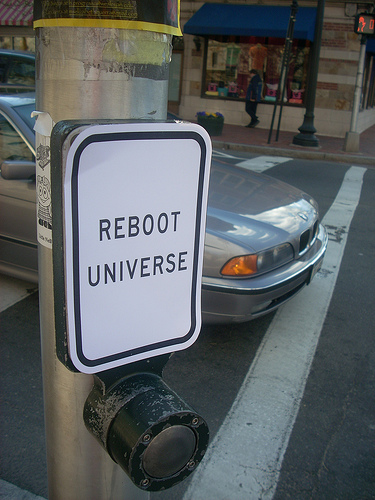
Ah, brains: so mysterious, complicated, and powerful, and yet so inclined to tell us to sit on the couch and eat doughnuts instead of doing the dishes or working out. What’s with these things, anyway?
There’s a group of neurons deep in the heart of the brain called the basal ganglia, and they’re involved in some important functions like movement and habit formation. How does the habit formation part work? Kind of a like a big, stupid, friendly guy, who’s only too willing to help but needs to be shown what to do over and over. And over. And over again. You get the idea.
So if I’m out here wanting to develop a habit of remembering someone’s name the first time it’s said by always repeating it and using a mnemonic, and if I try that once or twice, the basal ganglia–our big friend–are going to be staring at me dully, wondering exactly what I’m getting at. But if I stay aware with post-it notes or constant vigilance or a string tied around my finger, and if I keep at it, eventually he’ll get a glimmer of understanding in his eye (though it obviously the basal ganglia don’t really have eyes–that would be creepy) and try to follow along, hesitantly and with some confusion. And if I keep introducing myself to enough new people (perhaps volunteering at the membership table of a stamp collecting convention, if that’s what it takes), and remember to always say the name over silently and come up with a mnemonic, then he begins to get in the groove and really starts to learn to do what I’m doing.
But then let’s say I’m tired after the stamp collecting convention. I go to a diner for a nice tomato sandwich, and when the waitress introduces herself as Evangeline, I’m just too tired to memorize her name. Suddenly the big guy lurches to a stop. He thought I was doing the thing with the repeating and the mnemonics, and now I’m doing the thing with the tomato sandwich, which is a little too many for him. So he waits for a clue.
Then five minutes later someone comes up and says “Hey, you were at the stamp convention! Did you get a load of those Cinderellas? Man!” He introduces himself as Larry.
This is it. I’ve already blown it with Evangeline, and Larry here is my Waterloo: the only question is whether I’m the guy who won at Waterloo or the guy who lost (yeah, I know their names, but if we get bogged down in details this article is going to run 1,500 words before we’re done, and nobody wants that).
So maybe I look at Larry and silently repeat the name “Larry” to myself, then think, “You know, he’s the kind of guy who looks like he would have a lair.” (Lair-Larry: that’s my mnemonic. And don’t give me that–I never said it had to be a clever mnemonic.) In this case the big dumb guy (the basal ganglia, not Larry: Larry’s like, 5’6″, not to mention he got a 1710 on his SAT’s) smiles angelically and lumbers forward again. He understands: this is a habit he and I are trying to form, and the thing with what’s-her-name the waitress, Angelina or Emmaline or whatever, was just a glitch. As long as there are very, very few glitches and lots of Larry experiences, the basal ganglia guy will put more and more of his massive strength behind reinforcing my name-remembering habit. And if I keep that habit up every day or very nearly every day, in just 18-254 days, give or take, it should be completely locked in! Now was that so hard?
OK, it was hard–for maybe two or three months (68 days on average, according to one study). But for the rest of my life, or until I start getting old and confused and calling everyone “Josephine,” I’ll be a champion name-rememberer, and people will look at me with awe and say “Boy, I wish I could remember names like that. I guess some people can just naturally do it and some people can’t.”
And even while I’m smacking my forehead in dismay at such people, the big dumb guy is happily shoving their names into long-term memory for me, unconfused and at peace.
Photo by Olivander
Like this:
Like Loading...








